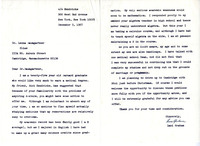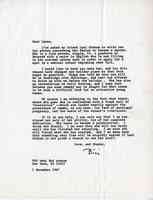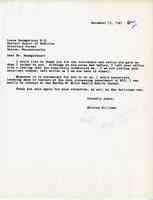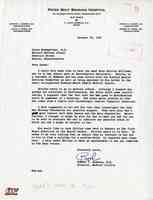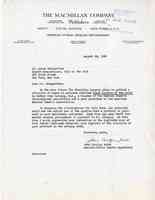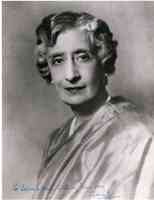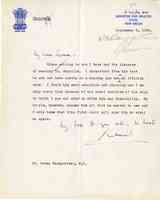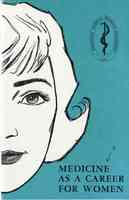Baumgartner, Leona papers, 1837-1993 (inclusive) 1930-1970 (bulk)
Dublin Core
Title
Description
Leona Baumgartner (1902-1991), A.B., 1923, University of Kansas; M.A., 1925, University of Kansas; Ph.D., 1932, Yale University; M.D., 1934, Yale University, was the first female Commissioner of Public Health for New York City, 1954 to 1962, and later became an Assistant Director of the Agency for International Development (AID), a position she held until 1965. She was named Visiting Professor of Social Medicine at Harvard Medical School, Boston, in 1966, where she served until her retirement in 1972. Throughout her career in public health administration, Baumgartner was dedicated to education as a cornerstone of building a healthier community. After becoming district health officer in 1939, she coordinated a growing number of health services, such as school health programs, parenting classes, and clinics on venereal disease. Maternal and child health was an important focus throughout her years in public service and informed her decision to promote family planning practices and birth control. She is credited with convincing President Lyndon Johnson to reverse a government policy denying funding for international programs providing birth control to make contraception more widely available. She was also an early advocate of using the Salk vaccine to immunize against polio and was an integral supporter of fluoridating New York City's water supply. As Health Commissioner, Baumgartner continued in the vein of Dr. S. Josephine Baker, who began a tradition of home health visits, by giving weekly radio and television addresses that tackled topics such as home safety and sanitation practices. The recipient of numerous honors, Baumgartner was awarded the Sedgwick Medal, the Albert Lasker Award, the Elizabeth Blackwell Award, the Samuel J. Crumbine Award, and the Public Welfare Award from the National Academy of Sciences in recognition of her many contributions to the field of public health.
Records in the Leona Baumgartner papers were created by Baumgartner during the course of her career as a state public health administrator and consultant, physician, lecturer, professor, and contributing member of professional health care boards and foundations from 1930 to 1970. Records consist of: research materials and reports from the International Development Institute (New York), the Health Research Insititute of New York, the Harvard Center for Health Services, the American Public Health Association, and the Harvard School of Public Health; notes for maternal and child welfare papers and presentations; lecture and speech drafts for talks delivered by Baumgartner as New York City's Commissioner of Public Health; personal and professional correspondence generated during Baumgartner's years of service to New York City Department of Health, and tenures as Executive Director of the New York Foundation, Associate Chief of the United States Children's Bureau, and Visiting Professor of Social Medicine at Harvard Medical School; research data and laboratory notes compiled while a student at Yale University, as well as notes from later global population studies, reports, and journals (including draft articles from Baumgartner and others), newspaper articles and magazine clippings; conference materials, administrative records, meeting minutes, appointment books, and photographs from Baumgartner's domestic and international trips and award ceremonies, and scrapbooks. The collection also contains records generated from Baumgartner's personal activities, including her travel diaries, collected family records (letters, diaries and notebooks), personal photographs, and awards, medals, plaques, diplomas, and other memorabilia.
Collection Items
View all 8 itemsCollection Tree
- Archives for Women in Medicine
- Baumgartner, Leona papers, 1837-1993 (inclusive) 1930-1970 (bulk)

